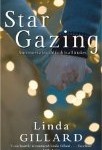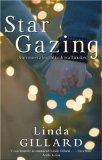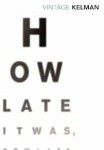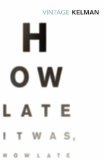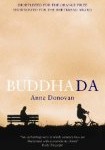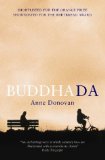I don’t read many romance novels, but I received an email from the author explaining that this book had been short-listed for 2 awards in 2009 – Romantic Novel of the Year and the Robin Jenkins Literary Award, the UK’s first environmental book award. This combination of awards intrigued me and so decided to give it a try. I was surprised when readers of Women’s Weekly voted it the best romance novel of the last 50 years as I thought that a more well known author would win, but it made me very curious about the contents of this little book.
Star Gazing is set in Scotland and focuses on Marianne, a blind woman who was widowed in her twenties. Now in her forties and living with her sister in Edinburgh she has resigned herself to a life alone, but all this changes when a mysterious man turns up on her doorstep.
I was immediately impressed by the quality of the writing. The descriptions of what life is like when you are unable to see were amazing and I felt that I came understand how she viewed the world.
I tell sceptics and doubters that I go to the opera because opera pours a vision of a wider world into my ears in a way that excites me. Plays, novels and poems move, entertain and educate me, but they don’t rock me to my foundations and make me see. I can read Tolstoy’s account of the French retreat from Moscow, either in Braille or as an audio-book, but I have never seen a city. Or snow. I’ve never seen a man, let alone an army. Tolstoy uses a visual language that I can read, haltingly. It’s not my mother tongue.
But music I can ‘read’ much more easily. In fact, I don’t need to read it at all. When I hear music it goes directly to my heart, it pierces my soul and stirs me with nameless emotions, countless ideas and aural pictures.
The characters were all well developed and engaging, but this book turned me into a gossiping woman! It was a very weird experience that I have never encountered with a book before. I found that I didn’t like the central character and wanted to slap her on numerous occasions. I told several people about the stupid things she’d done and had lengthy conversations about her decisions. This makes the book a perfect choice for book groups as I guarantee that you will enjoy discussing the events in this book.
I also had a problem with some of the plot towards the end of the book. I don’t want to spoil anything for you, but a few things were a bit far-fetched and I’m afraid I’m a miserable sceptic who has trouble believing that people can have visions of future events.
Despite these criticisms I think the fact I wanted to talk about this book so much proves its quality. I don’t think it is the best romance novel of the last 50 years (The Time Traveller’s Wife and The Dark Side of Love are my favourites), but it is an original, heartwarming book.
Recommended.
